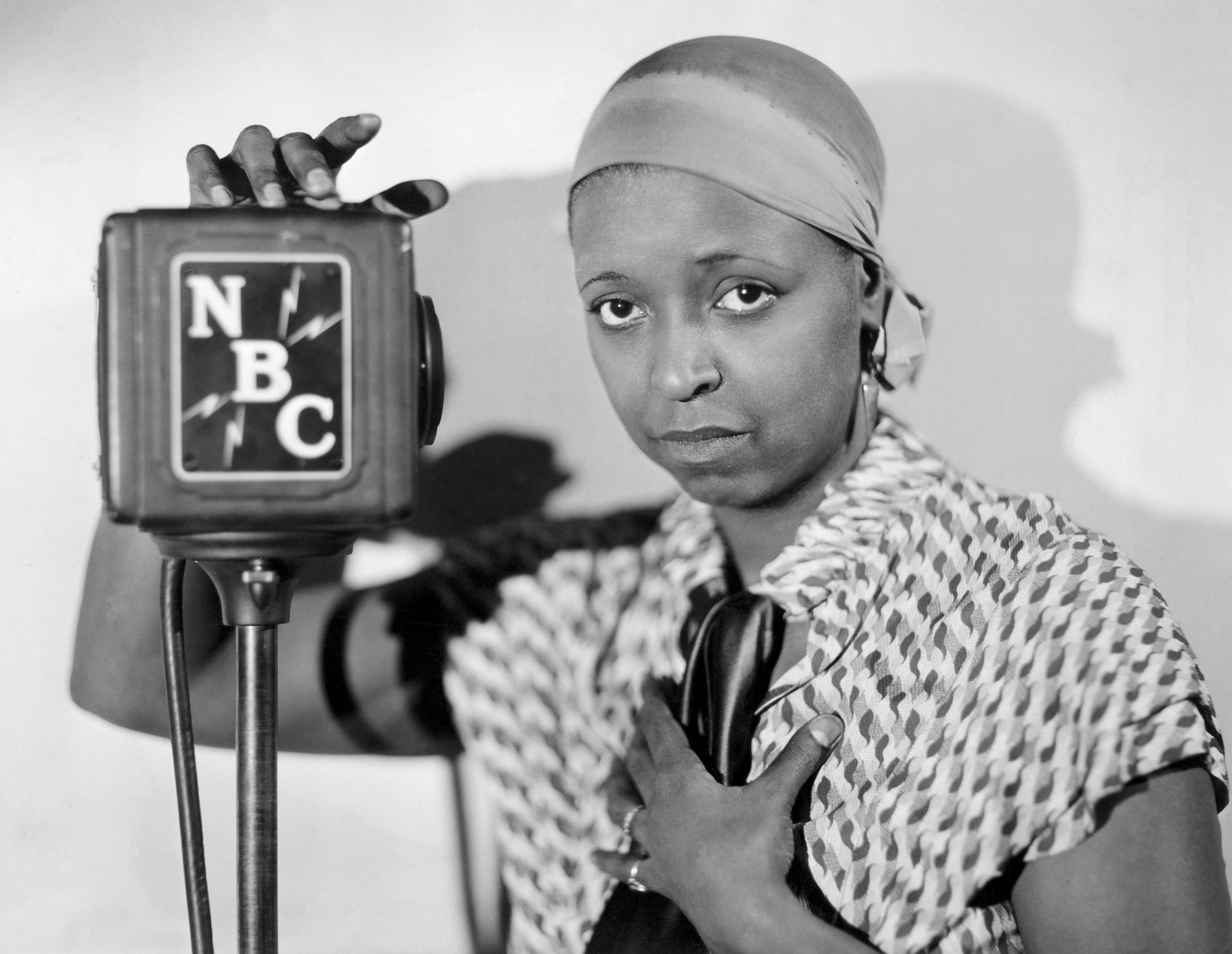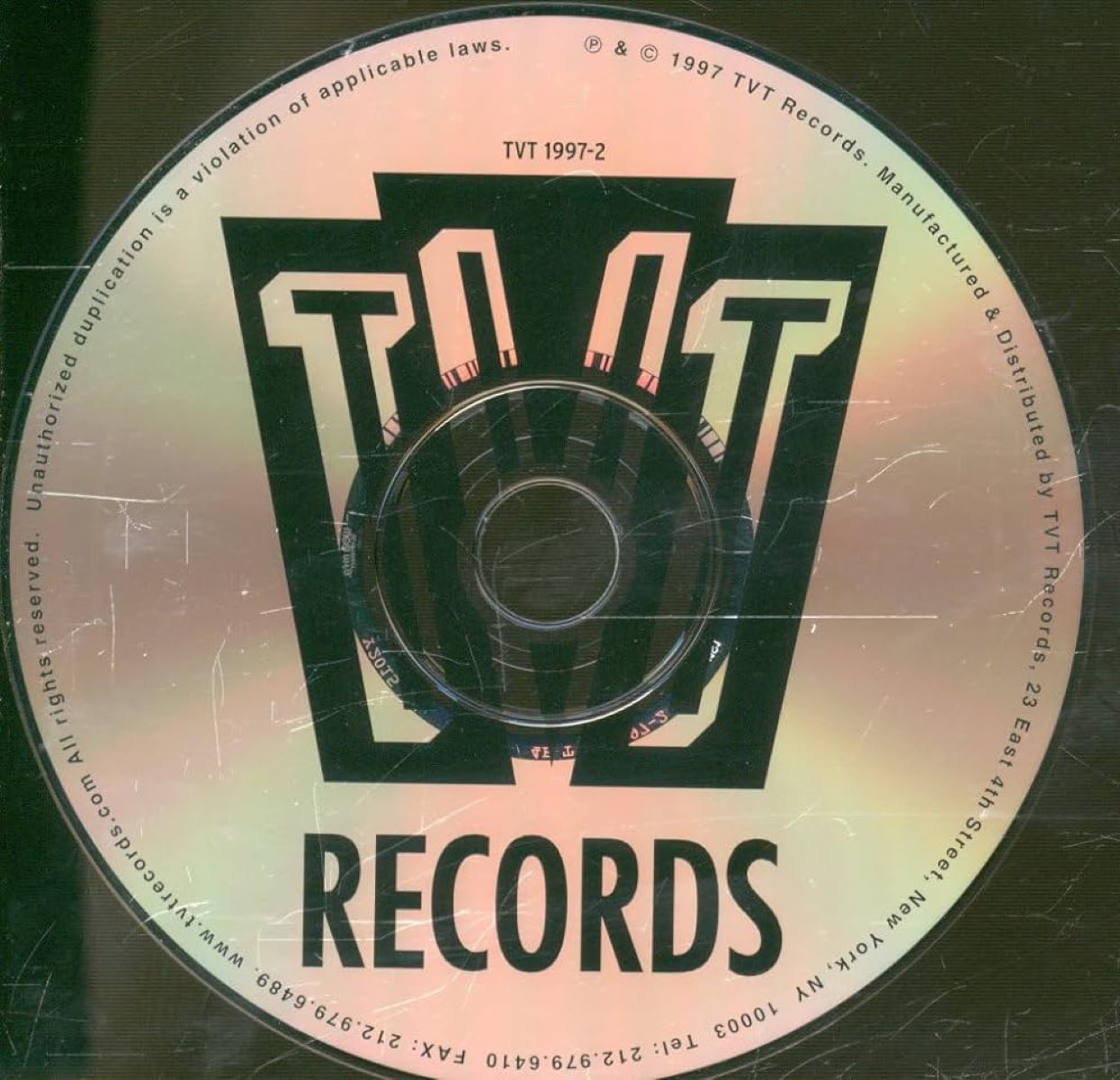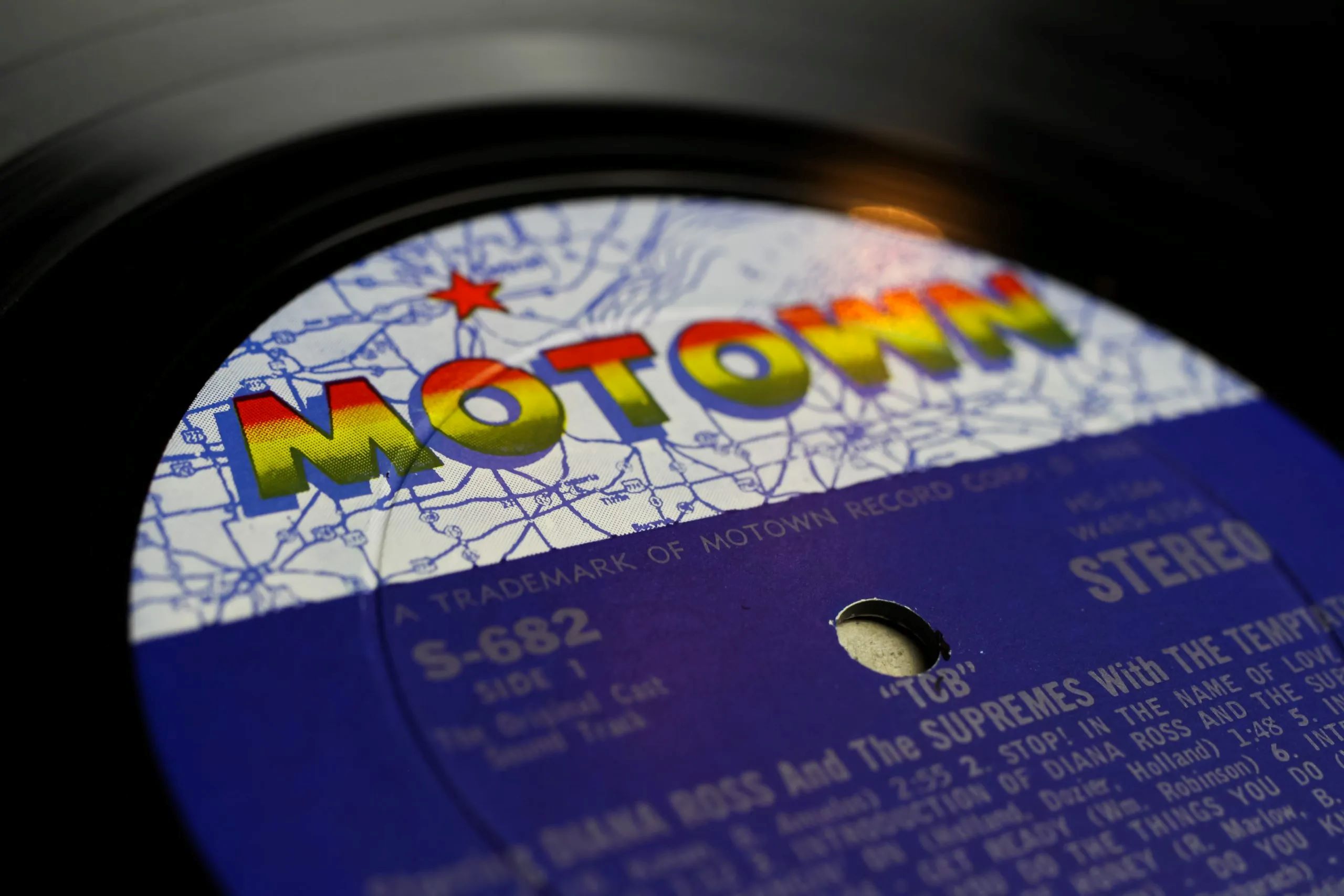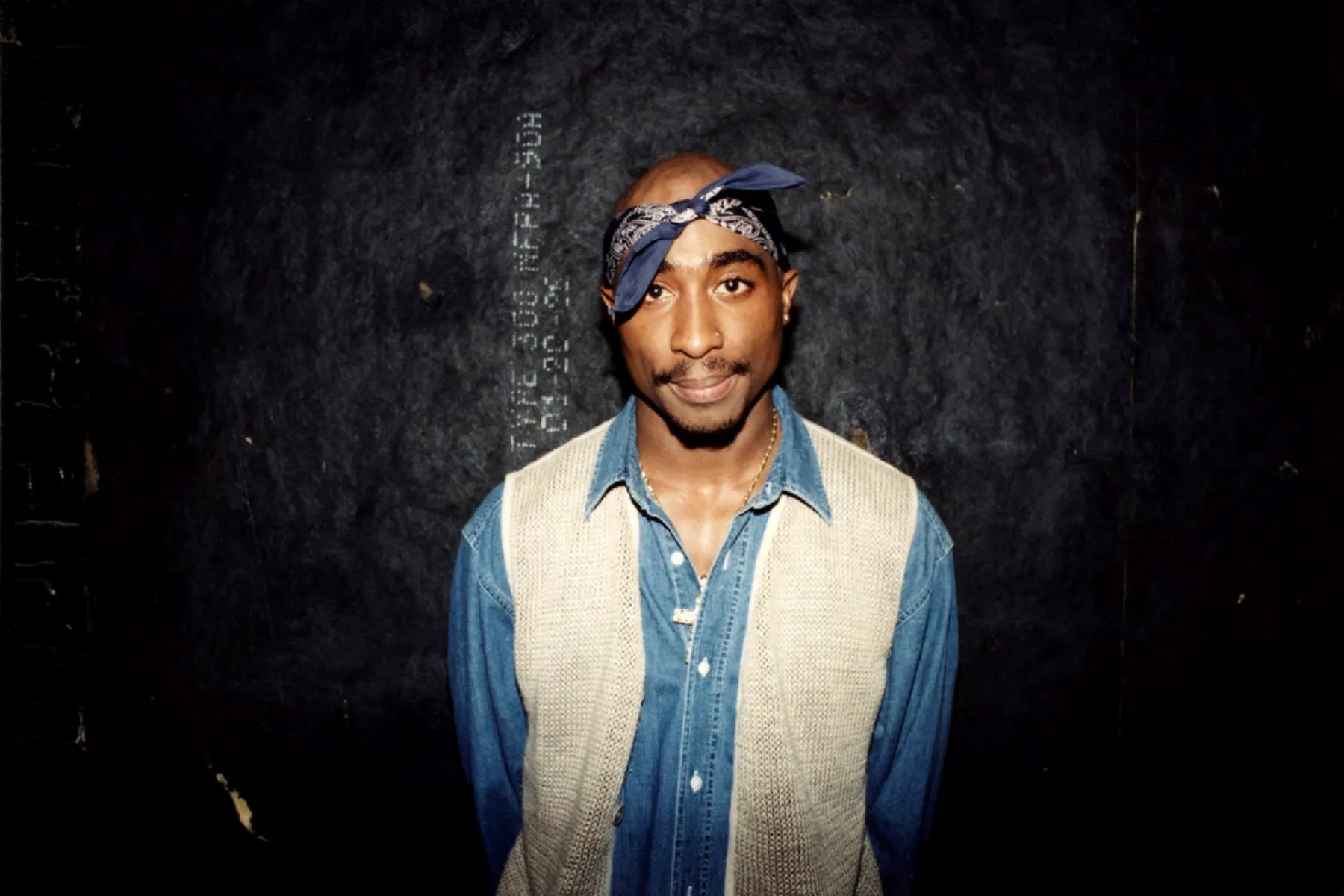Home>Production & Technology>Record Label>What Was The First African American Owned Record Label


Record Label
What Was The First African American Owned Record Label
Published: January 25, 2024
Discover the history of the first African American owned record label and its impact on the music industry. Explore the legacy of this groundbreaking record label.
(Many of the links in this article redirect to a specific reviewed product. Your purchase of these products through affiliate links helps to generate commission for AudioLover.com, at no extra cost. Learn more)
Table of Contents
- Introduction
- Early African American Record Labels
- The Birth of the First African American Owned Record Label
- The Founders of the First African American Owned Record Label
- Key Artists and Releases from the First African American Owned Record Label
- Impact and Legacy of the First African American Owned Record Label
- Conclusion
Introduction
Record labels play a crucial role in the music industry, as they help artists and musicians bring their music to the masses. Over the years, there have been numerous record labels that have made a significant impact on the music landscape. One particular milestone in the history of record labels is the establishment of the first African American-owned record label.
Before the emergence of African American-owned record labels, the music industry was predominantly controlled by major labels, which often disregarded or marginalized black artists. This systemic racial bias led to the formation of independent record labels by African Americans who sought to create a space for black artists to flourish.
These pioneering record labels not only provided opportunities for talented black musicians, but also played a pivotal role in shaping and influencing popular music genres such as jazz, blues, and rhythm and blues. The first African American-owned record label holds a special place in history, as it paved the way for other black entrepreneurs to break through the barriers of discrimination and establish successful record label ventures.
This article aims to explore the origins, founders, key artists, and the lasting impact of the first African American-owned record label. By delving into its history and significance, we can gain a deeper understanding of the struggles and triumphs that have shaped the landscape of the music industry, as well as celebrate the contributions of these trailblazing entrepreneurs and artists.
Early African American Record Labels
During the early 20th century, African American musicians faced significant hurdles in entering the mainstream music industry. Discrimination and segregation were pervasive, with many major record labels refusing to sign or promote black artists. In response, independent African American record labels began to emerge in an effort to give black musicians a platform to share their talents and reach a wider audience.
One notable early African American record label was Black Swan Records, founded in 1921 by Harry Pace. Black Swan Records became the first black-owned record label to gain national recognition. It was instrumental in introducing the world to iconic artists like Ethel Waters and Fletcher Henderson, who contributed significantly to the development of jazz and blues.
Another influential African American-owned record label of the time was Paramount Records, established in 1917 by J. Mayo Williams. Paramount Records focused on recording and promoting blues, gospel, and jazz artists. The label showcased the talents of iconic musicians such as Ma Rainey, Blind Lemon Jefferson, and Louis Armstrong.
During the 1930s and 1940s, an era known as the “race records” period, several other African American-owned record labels emerged. These labels catered primarily to black audiences and featured artists from various genres, including rhythm and blues and gospel. Some notable examples include Apollo Records, Savoy Records, and Chess Records.
Despite facing numerous challenges, including limited distribution networks and financial constraints, these early African American record labels played a pivotal role in providing a platform for black artists to express their creativity and connect with audiences who were eager for their music.
These independent record labels not only showcased the talents of African American artists but also contributed to the development and evolution of popular music genres. They paved the way for future entrepreneurs and record label owners to break down barriers and establish successful ventures, ultimately leading to the birth of the first African American-owned record label.
The Birth of the First African American Owned Record Label
The establishment of the first African American-owned record label marked a significant milestone in the music industry and provided a groundbreaking opportunity for black artists and entrepreneurs. This historic event took place during a time when racial segregation and discrimination were prevalent, making the accomplishments of these pioneers even more remarkable.
In 1919, two visionary entrepreneurs, Harry Pace and W.C. Handy, joined forces to create the first African American-owned record label. Their label was named ‘Black Swan Records,’ symbolizing the elegance, resilience, and beauty of black culture.
Black Swan Records aimed to uplift and promote the voices of African American artists who were often overlooked or excluded by major record labels. The label’s mission was to provide a platform for black musicians to express themselves freely and share their talents with the world.
Harry Pace, a former executive at the prominent music publishing company Pace & Handy, brought business acumen and industry connections to the table. W.C. Handy, widely known as the “Father of the Blues,” brought his musical expertise and passion for celebrating the rich musical traditions of African Americans.
The duo set out to record and distribute a wide range of music genres, including blues, jazz, gospel, and popular songs performed by black artists. By doing so, they aimed to challenge the prevailing notion that African American music was limited in its appeal and commercially viable only within the black community.
To ensure the success of the label, Pace and Handy assembled a talented roster of artists, including renowned performers such as Ma Rainey, Ethel Waters, and Alberta Hunter. These artists not only possessed extraordinary talent, but they also infused their music with the raw emotion and authenticity that resonated with audiences across racial barriers.
Black Swan Records faced numerous challenges in its early years, including financial constraints and limited distribution networks. However, the label’s dedication to supporting black artists and showcasing their unique musical expressions propelled it forward. The label’s success was also driven by Harry Pace’s innovative marketing strategies, such as targeting the growing African American middle class as potential consumers.
Tragically, despite reaching considerable success, Black Swan Records faced financial difficulties during the Great Depression and ultimately ceased operations in 1923. However, its legacy and impact on the music industry remained undeniable.
The birth of the first African American-owned record label paved the way for future black entrepreneurs to establish their own labels and create opportunities for emerging black talent. It inspired generations of musicians and industry professionals to challenge stereotypes and push the boundaries of what was considered mainstream music.
Today, the legacy of Black Swan Records serves as a testament to the resilience and innovation of African American entrepreneurs and musicians. It stands as a reminder of the power of art and music to break down barriers and foster cultural exchange.
The Founders of the First African American Owned Record Label
The first African American-owned record label, Black Swan Records, was the brainchild of two remarkable individuals who shared a passion for music and a vision of empowering black artists. Harry Pace and W.C. Handy, both influential figures in their respective fields, joined forces to create a platform that would forever change the landscape of the music industry.
Harry Herbert Pace, a savvy businessman and music executive, played a pivotal role in the formation and success of Black Swan Records. Born in 1884 in Covington, Georgia, Pace possessed a deep understanding of the music business. After graduating from Atlanta University with a law degree, he co-founded the Pace & Handy publishing company, alongside legendary composer W.C. Handy.
Pace brought his business acumen and industry connections to the table when he embarked on creating Black Swan Records. He possessed a keen understanding of market dynamics and recognized the untapped potential of African American music. Pace’s vision was to create a record label that would showcase the immense talent of black artists and give them the recognition they deserved.
W.C. Handy, also known as the “Father of the Blues,” was a highly influential composer and musician who contributed significantly to the development and popularization of blues music. Born in 1873 in Florence, Alabama, Handy experienced firsthand the power and emotional depth of African American music during his travels across the South.
Handy’s deep appreciation for the blues and his musical genius played a crucial role in shaping the artistic direction of Black Swan Records. His involvement ensured that the label would prioritize recording and promoting the rich musical traditions of African American artists, including blues, gospel, and jazz.
Pace and Handy’s partnership was a perfect combination of business expertise and musical talent. Their shared vision and dedication to uplifting black artists propelled Black Swan Records to the forefront of the music industry.
Together, they recruited a roster of extraordinary musicians, including the legendary Ma Rainey, known as the “Mother of the Blues.” Rainey’s powerful and emotive voice became synonymous with the label and helped establish Black Swan Records as a force to be reckoned with.
Despite facing numerous challenges, including financial difficulties and limited resources, the founders of Black Swan Records remained committed to their mission. Their unwavering belief in the power of African American music, along with their entrepreneurial spirit and innovation, laid the foundation for future generations of black-owned record labels.
Harry Pace and W.C. Handy’s contributions to the music industry extend far beyond their roles as founders of the first African American-owned record label. Their dedication to promoting black artists and their determination to challenge the prevailing racial biases of the time left an indelible mark on the industry’s history.
Their legacy serves as a lasting inspiration for aspiring entrepreneurs and musicians, reminding us of the importance of representation, cultural empowerment, and the transformative power of music.
Key Artists and Releases from the First African American Owned Record Label
Black Swan Records, as the first African American-owned record label, provided a platform for numerous talented artists who would go on to shape the course of music history. The label’s commitment to showcasing the immense talent within the African American community resulted in a series of groundbreaking releases that left an indelible mark on the industry.
One of the most iconic artists associated with Black Swan Records was Gertrude “Ma” Rainey, often referred to as the “Mother of the Blues.” Rainey’s powerful voice and commanding stage presence captivated audiences and ensured her place as one of the label’s most successful artists. Her recordings, such as “Bo-Weevil Blues” and “See See Rider Blues,” continue to be celebrated as timeless classics of the blues genre.
Another notable artist on the Black Swan Records roster was “Queen of the Blues” Alberta Hunter. Hunter’s soulful, emotive voice and her ability to infuse emotion into every note solidified her place as one of the label’s most revered performers. Her songs, including “Downhearted Blues” and “Nobody Knows You When You’re Down and Out,” resonated deeply with audiences and brought her widespread acclaim.
Black Swan Records also played a significant role in the early career of the legendary Ethel Waters. Waters, known for her unique vocal style and her ability to effortlessly transition between genres, recorded several influential tracks for the label. Her renditions of songs like “West End Blues” and “Midnight Blues” showcased her versatility and paved the way for her future success in the entertainment industry.
In addition to these iconic artists, Black Swan Records also featured the talents of performers like Fletcher Henderson, a pioneering bandleader and pianist, and Clara Smith, a powerhouse blues vocalist. The label’s diverse roster reflected the range and depth of African American musical expression during that era.
Black Swan Records released music spanning a variety of genres, including blues, jazz, and gospel. These releases represented the rich tapestry of African American music and served as a testament to the label’s commitment to showcasing the depth and diversity of black talent.
The impact of Black Swan Records extended far beyond individual artists and songs. The label’s recordings have been recognized for their influence on the development of jazz and blues, and their importance in preserving and popularizing African American musical traditions.
Despite facing financial and logistical challenges, Black Swan Records managed to release a considerable catalog of music that left an indelible mark on the music industry. The label’s commitment to amplifying the voices of African American artists and bringing their music to a wider audience continues to inspire and resonate with audiences today.
The artists and releases from Black Swan Records not only shaped the sound of the time but also set the stage for future developments in music. Their contributions remain a testament to the enduring legacy of the first African American-owned record label and its impact on the ever-evolving music landscape.
Impact and Legacy of the First African American Owned Record Label
The establishment of the first African American-owned record label, Black Swan Records, had a profound impact on the music industry and the cultural landscape as a whole. The label’s mission to amplify the voices of black artists and provide a platform for their talent forever changed the way African American musicians were perceived and celebrated. The impact and legacy of Black Swan Records can be seen in several key areas.
Representation and Empowerment: Black Swan Records shattered long-standing racial barriers in the music industry. By providing opportunities for black musicians to record and distribute their music, the label empowered artists who had previously been marginalized and overlooked by major labels. Through their releases, Black Swan Records showcased the immense talent and creativity within the African American community, challenging prevailing stereotypes and ensuring representation for black artists.
Influence on Music Genres: Black Swan Records played a pivotal role in the development and popularization of genres such as blues, jazz, and gospel. The label’s recordings captured the raw emotion, authenticity, and unique styles of these genres, paving the way for their wider recognition and acceptance. The artists associated with Black Swan Records contributed to the evolution and expansion of these genres, leaving an indelible mark on the musical landscape.
Trailblazing Entrepreneurship: The success and influence of Black Swan Records inspired future generations of black entrepreneurs in the music industry. The label served as a blueprint for African American-owned record labels that followed, providing inspiration and a roadmap for navigating the challenges and complexities of the business. Black Swan Records demonstrated that black business owners could thrive in an industry often dominated by major labels, setting a precedent for future black-owned ventures in the music industry.
Preservation of African American Musical Traditions: Black Swan Records played a crucial role in preserving and documenting African American musical traditions. The label’s recordings captured the essence of blues, jazz, and gospel music at a time when these genres were still emerging and evolving. The legacy of Black Swan Records continues to serve as a vital resource for scholars, historians, and music enthusiasts, providing a window into the rich cultural heritage of African American music.
Social and Cultural Transformation: The establishment of Black Swan Records represented a significant step towards dismantling systemic racism and challenging stereotypes. The label’s commitment to promoting black artists and their music fostered cultural exchange and facilitated a more inclusive and diverse music industry. The influence of Black Swan Records transcended the confines of the music world, contributing to broader social and cultural transformations by encouraging society to recognize and appreciate the artistic contributions of African Americans.
The legacy of Black Swan Records remains a testament to the resilience, creativity, and entrepreneurial spirit of its founders. The label’s impact reverberates throughout the music industry to this day, reminding us of the power of music to break down barriers, inspire change, and celebrate the unique expressions of diverse cultures.
Conclusion
The establishment of the first African American-owned record label, Black Swan Records, marked a significant milestone in the history of the music industry. This pioneering venture, led by Harry Pace and W.C. Handy, challenged the prevailing racial biases and gave voice to black artists who had long been marginalized by major record labels.
Black Swan Records, along with other early African American-owned record labels, brought about a transformative change in the music industry. These labels not only provided opportunities for talented black musicians, but they also influenced and shaped popular music genres such as blues, jazz, and gospel, leaving an indelible mark on the cultural fabric of America.
The legacy of the first African American-owned record label is multi-faceted and far-reaching. It introduced the world to iconic artists like Ma Rainey, Ethel Waters, and Alberta Hunter, who would go on to become legends in their respective genres. It also inspired future generations of black entrepreneurs and musicians, paving the way for a more diverse and inclusive music industry.
Black Swan Records demonstrated the power of representation and empowerment, providing a platform for black artists to express themselves freely and share their talents with the world. The label’s impact extended beyond the confines of the music industry, contributing to broader social and cultural transformations by challenging stereotypes and opening doors for African American artists.
The influence of Black Swan Records can still be felt today. Its recordings continue to be celebrated as classics, and its trailblazing spirit serves as an inspiration for aspiring musicians and entrepreneurs. The label’s contributions to the preservation and popularization of African American musical traditions cannot be overstated.
In conclusion, the first African American-owned record label, Black Swan Records, played an instrumental role in breaking down barriers, amplifying the voices of black artists, and transforming the music industry. Its impact and legacy continue to resonate, reminding us of the power of music to transcend boundaries, challenge societal norms, and unite diverse cultures in a celebration of talent and creativity.











